1) What got you into photography?
My parents laid the groundwork; my father was a camera collector and my mother would take seven rolls of film just because it was Tuesday, but it was really when I started getting quick results and losing the cost-per-shot that my interest was piqued. That happened first with film while working at a newspaper -- the photo editor would take it off and develop it and I'd see the results within the hour. Before that, it's kind of sad. I went to Greece for two weeks in '98 and took three photos.
Yes, I was photographing for newspapers before I was interested in photography. Life is weird.
2) When did portraiture become your strength, at least in my opinion it seems to be your strong suit.
I'm not so sure my strength is portraiture as much as pictures with people in them, since that's generally the only kind I care about. As I was trained at the newspaper, one of the first rules was "Photos are more interesting with people in them." I learned that before I learned what an f-stop was. We're trained by evolution to care about faces, eyes, gestures, for the countless permutations of them to each have meaning. We don't read as much in a sunset. There are maybe four great sunset photos, the rest are iterations of them.
3) How has flickr worked to help you along your way?
In too many ways to count; Flickr made everything snowball by having random people come by and say "Hey, that's pretty cool!" Instead of just messing around and having fun, it made me want to keep getting better and better. I deliberately keep everything I've ever posted up to Flickr, even though that's kind of a bad idea for the branding aspect of professional photography. I want people to see that my old stuff kind of sucked so they can see that the learning process continues. I know of photographers who did their best work maybe 40 years before they died, and that would be such an awful feeling.
4) Are there any photographers that you admire or seek to emulate?
More so all the time. I like the idea of bring the crazy, awesome war photographer drive and aesthetic to everyday shots, even commercial shots. How would Nachtway shoot a plate of food? How would McCurry shoot this wedding? Not in the pictures themselves, which might be scary, but bringing that relentless intensity even to jobs others would find boring. Just this week I discovered the work of Ben Chrisman, an insanely good wedding photographer who's *actually trained with Nachtway!* I want to be him when I grow up, and I need to hurry since he looks about six months older than me.
5) What's something in photography that you haven't figured out how to do yet?
Don't tell anyone at art school, but I've never shot large format. I have medium format rolls that have been waiting to be developed for two years; I'm kidding myself that I could get too into the LF processes. Maybe in a few years, when I get sick of doing things the way I'm doing them now.
6) What's some basic advice on taking a good portrait to someone just starting out?
Assuming you know how to take an exposure, it's all about the stuff that happens before you click the shutter. Is the person comfortable with you? Have you thought about the way they represent themselves, the way they are, the things that are appealing about them? A little bit of intention goes a long way. If subjects don't connect with you, that's going to show. Maybe they can smoke and look off in the distance dramatically.
7) What's your favorite lens/camera for taking portraits?
Depends on the type of portrait, but in general there's nothing like the 85mm f/1.4. I have to say the D3 to justify my expense, but except for the cropped frame the S5 was everything I could dream of for portraits. The D3 just gives me more DOF control and I can chimp again. Working with the S5 is basically like working with film. If you want to chimp you'd better take a coffee break for that buffer to clear.
8) What's harder to shoot, a bride or a model?
A good model is easiest, a bad model is the worst thing of all. A bride who's bad with the camera is still glowing and happy and in a nice dress and can easily become part of a great composition. A model trained only to look surly by reading magazines that care about clothing a thousand times more than people really gets under my skin, which is why I tend to work with actresses and chemists and web designers and entrepreneurs more than people who just dream of being on ANTM.
9) Tell us one piece of photography equipment out there that you'd like to get your hands on?
An AF-S Nikon 28mm f/1.4. I'm just waiting for it to exist.
10) Out of the 10 portraits chosen for Spotlight Seven, which is your favorite and why?

I'm always biased toward my more recent stuff, but that shot represents a new turn in my career. I've actually been doing some magazine and corporate jobs that bring me into contact with people who've led similarly fascinating lives, but I haven't been able to show much on Flickr. Plus, the shoot itself was a real success in one of the biggest skills needed for commercial work -- shooting under intense pressure. I managed to get the clean, emotional shots for an annual report by illegally setting up lights in Staten Island Ferry terminal, five feet from a security guard. In the 90 seconds he took to shut me down, I'd already set up the light and gotten the shot. (It wasn't my fault we didn't have permits, that's another story about pressure.) We were blocked from the shots we wanted on the ferry so I ran and found this tiny little stretch in the back, where again I managed to get just what they wanted. Then done with the safe ones, I was able to execute the shot I wanted in the 30 seconds or so I had left -- and it was capped off by that bird being in the perfect position.
All of that is nothing at all compared to the meaning of the man's life and the honor to represent it, but it means more to me because I wasn't just lucky, I fought like crazy to get things right. I like professional photography not because it makes me money, but because it presents me with an endless string of problems to solve. It keeps things interesting, and intensely rewarding.

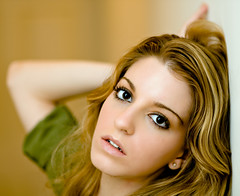


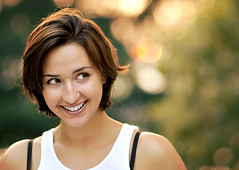
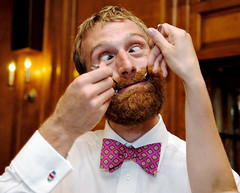

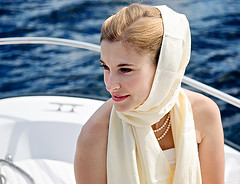
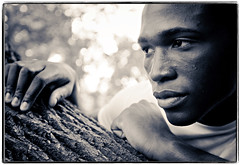

No comments:
Post a Comment